In this article
The mint genus is a broad category of plants containing multiple species that cats will react to differently. If you’re confused about the difference between catnip and catmint or catmint and wild mint, you’ve come to the right place as we’ll clarify if mint is safe for cats. We’ll start by putting your mind at ease, just in case you found this article by searching its headline in a panic: Mint poisoning in cats is not a common occurrence.
While it’s true that many members of the mint genus are toxic to cats, they’re often only poisonous in huge volumes. That said, mint or peppermint essential oils in concentrated forms are dangerous for cats. If your cat just ate wild mint out of your backyard or window herb garden, take a deep breath.
They’ll be fine, and if they do start vomiting or showing signs of weakness, they can be treated for mint poisoning at the vet’s office. Now that we’ve established your cat won’t die, let’s learn more about mint and its complicated relationship to your fuzzy pal.

Genus Mentha
Mentha is the scientific name for mint plants, part of the family Lamiaceae, or sages. They’re recognizable by their square stems, long leaves, and distinctive smell, not to mention the cool, fresh feeling you get from chewing them caused by the chemical menthol.
The most common variety is Mentha spicata, or garden mint, which is also known as spearmint, common mint, lamb mint, or garden mint. It’s a wild herb, frequently found running wild in gardens from Ireland all the way east to China. American readers will likely have seen Mentha canadensis, or American wild mint, growing in low, rocky terrain near water.
Mentha spicata is cultivated as an herb and used in cooking and flavoring. Peppermint or Mentha piperita is another common aromatic herb in this family, also widely distributed and used for cooking and flavoring.
The other most important type of mint we’ll be talking about isn’t actually a mint but a fellow member of the sage family. It’s Nepeta cataria, with the common name of catnip and Nepeta x faassenii, or catmint.
Catnip is used to attract cats to play with toys. It’s also considered a kind of kitty drug since it induces certain moods: It mellows and relaxes adult cats when ingested and stimulates energy when sniffed. Another common cat-attracting herb in this family, “catmint” is responsible for most of the confusion around whether mint is safe for cats.
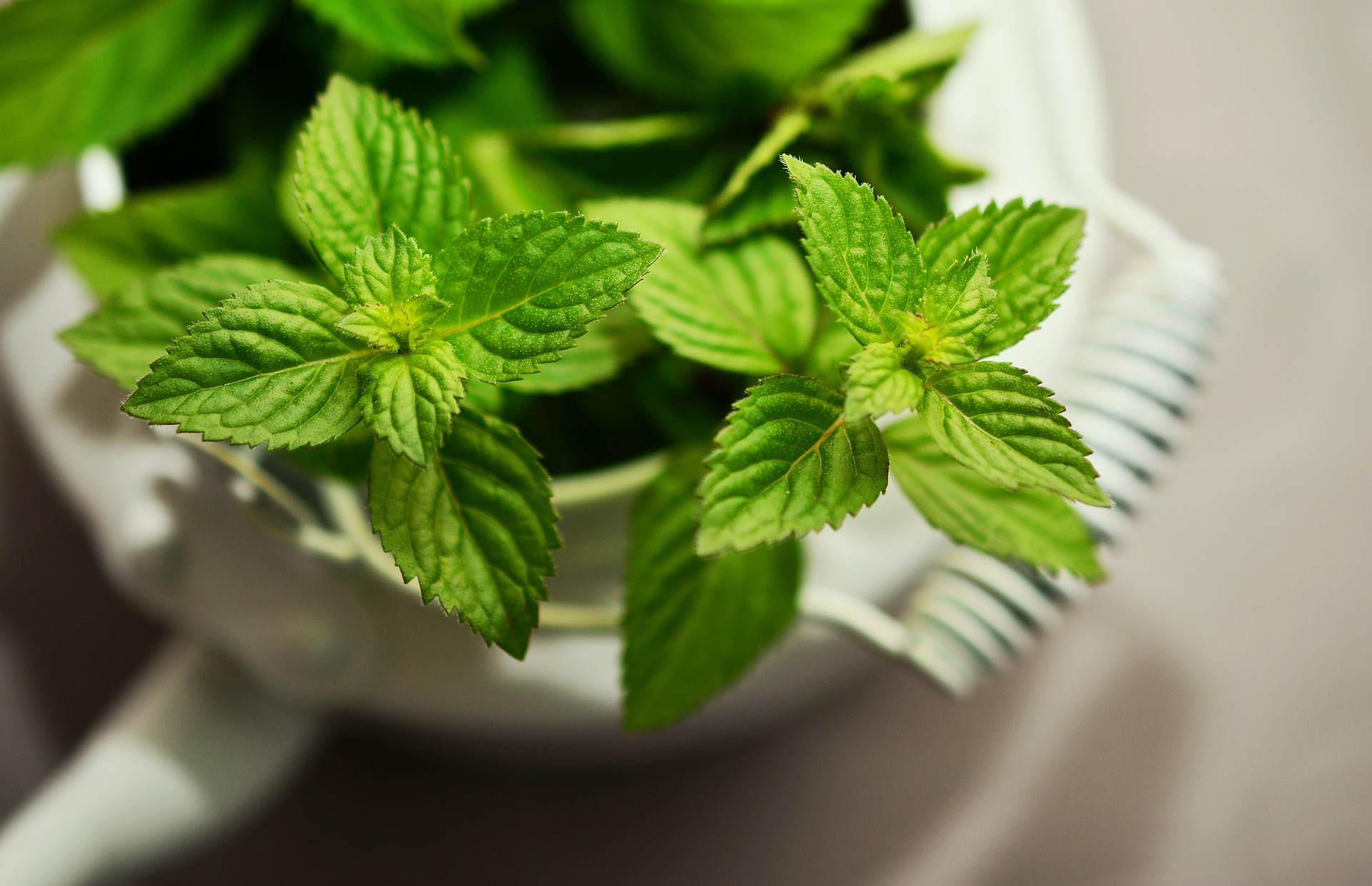

Mint Poisoning
Plants with a strong scent or flavor contain essential oils that are generally to blame for pet intoxication. Those aromatherapy bottles of “essential oils” are highly concentrated forms of those chemicals and can be very toxic for cats, which lack certain enzymes in their liver to metabolize and eliminate them. If you have cats, you should avoid keeping any essential oils in your home, but peppermint or Mentha piperita essential oils are especially dangerous for cats.
It is worth noting that cats do not even need to ingest essential oils to suffer from intoxication. Inhalation from diffusers and absorption through the skin will also cause problems. If your cat presents with the following signs and you know that essential oils are in your house, please understand that this is a medical emergency and your cat needs veterinary attention.
- Excessively vomiting
- Drooling
- Wobbly walk
- Difficulty breathing
- Low body temperature
- Tremors
- Low heart rate
Mint plants contain essential oils that can be dangerous for cats in their undiluted form. But a cat would need to ingest very large amounts of mint to have that much essential oil, which will make your cat sick.
Luckily, on their own, cats tend to nibble mint leaves, which won’t deliver anywhere near a toxic dose. However, if your kitty is throwing up and you suspect the mint patch in your garden might be the cause.
- Upset stomach
- Nausea
- Weakness
- Vomiting
- Diarrhea
If your cat displays any of these signs and does not recover after vomiting, it is best to head to the vet.
If you need to speak with a vet but can't get to one, head over to PangoVet. It's an online service where you can talk to a vet online and get the advice you need for your pet — all at an affordable price!

Treating Mint Poisoning
If you take your cat to the vet with a case of suspected mint poisoning, they’ll start by observing your pet and evaluating how bad their condition is. Provide the vet with as detailed a description as possible of what your kitty ingested. It would be ideal to have the details of the exact mint form, its species, and the approximate amount ingested. The vet may induce vomiting or pump the cat’s stomach if necessary. Activated charcoal, gastric protectants, and even I.V. fluids might be given to your pet. If the intoxication is due to essential oils, your vet might prescribe your cat hepato protectants, and they will likely need to be hospitalized.

The Strange Case of Catnip
So far, so good: don’t let your cats eat concentrated peppermint extract or wolf down garden mint for hours unsupervised, and they’ll be fine. Catnip/catmint is the confusing part. “Mint” is in the name, so many people assume it must be in the mint genus and poisonous. But as we’ve seen, catmint isn’t a mint but a different part of the sage family. That means it must be okay, right?
Not necessarily. A quick look at the ASPCA’s toxic plants database reveals that catnip/catmint is considered to be potentially harmful to cats. In their words: “Many cats love catnip, but it can cause vomiting and diarrhea. It makes some cats sedated and others stimulated.”
Cats react to catnip in different ways. About 30% of cats don’t get any buzz from catnip. Some cats love to roll around and paw at catnip for different lengths of time. Others, when they ingest far too much, will experience digestive distress.
What does this mean for you as a cat owner? Catnip is harmless for almost every cat, but you should still pay it the respect it’s due and prevent excessive ingestion. Don’t keep catnip leaves out for your cat to eat, but introduce catnip to them using safe toys instead. Toys will never contain enough catnip to produce a toxic reaction in your cat.
Remember that mild sedation is one common effect of ingested catnip, and it is easy to confuse with mint-poisoning weakness. Know how your cat reacts to small amounts of catnip. If it usually makes them hyper, but this time, they’re suddenly relaxed, that might be cause for alarm.
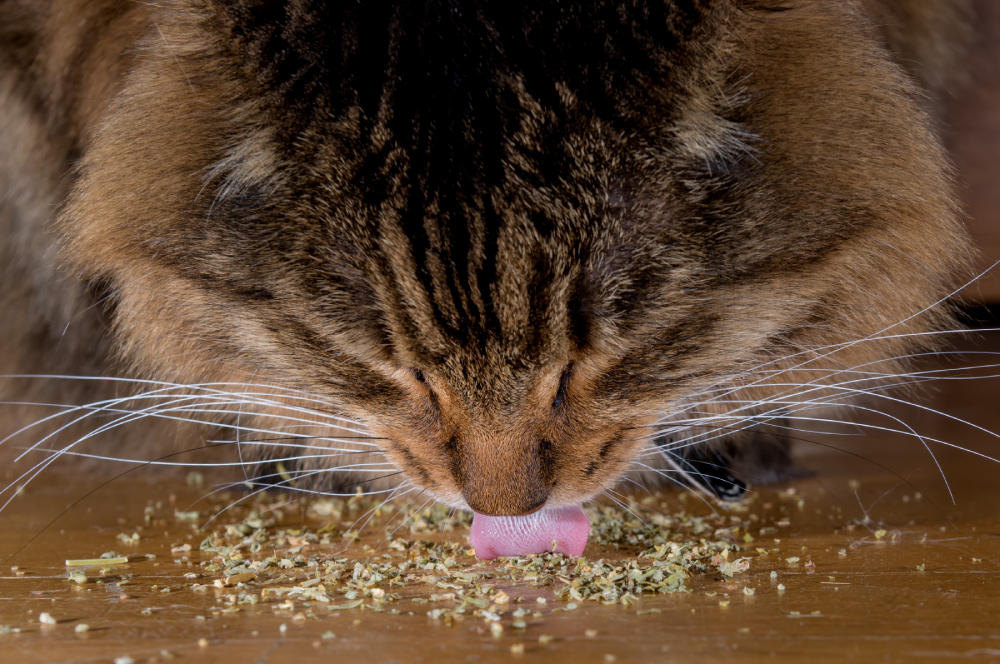
Other Plants to Know
Catnip isn’t the only plant that might induce your cat to be frisky, enjoy themselves, or mellow out. If your cat is one of the 30% that don’t respond to catnip, try valerian, silver vine, or Tatarian honeysuckle wood.
- NO MESS - The 360° tray on this cat food and water bowl set has a raised design to catch and...
- WHISKER FRIENDLY - Shallow and wide metal containers with flat bottoms ensure your kitty can enjoy...
- CHEW-SAFE MATERIALS - Kittens and cats love chewing on silicone and soft rubber - but it's a choking...
Learning about what your cat can and cannot eat is a crucial part of keeping them happy and healthy! Choosing a bowl to serve cat-friendly foods in is another important decision pet owners face. Satisfy the specific needs of your cat with the innovative design of the Hepper NomNom Cat Bowl. Learn why it’s our (and our cats!) favorite food and water dish here.
At Catster, we’ve admired Hepper for many years and decided to take a controlling ownership interest so that we could benefit from the outstanding designs of this cool cat company!

Conclusion
We hope that has cleared up any confusion about whether cats can eat mint or not. The best thing you can do to keep your cat safe from mint poisoning is to learn to recognize mint plants and chart out where your cat might encounter any. You should never keep essential oils of any kind, including mint or peppermint, in a house with a cat.
It’s also vital to memorize the scientific name for catnip (Nepeta cataria). If you want to get any for your cat, instead of getting pre-filled toys (the safest option), only buy catnip with Nepeta cataria on the label. You can’t trust that everybody will understand the difference between garden mint and catmint.
See Also:
Featured Image Credit: Pexels, Pixababy
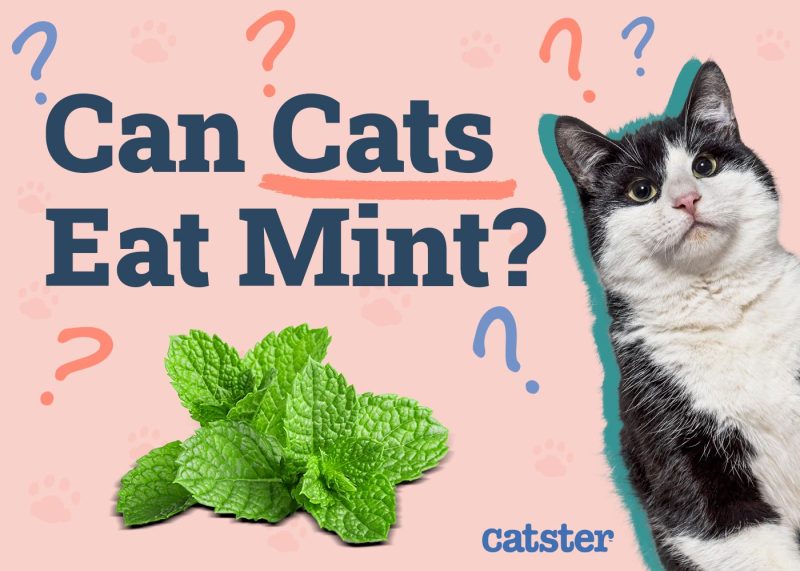



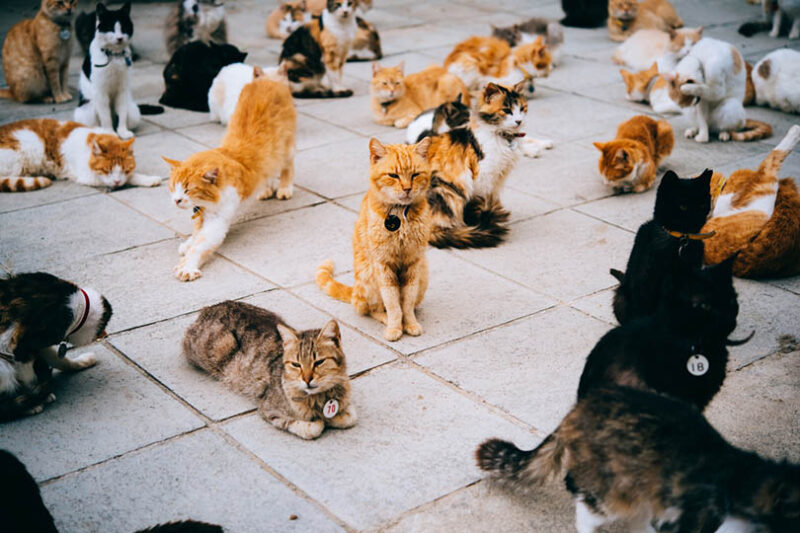
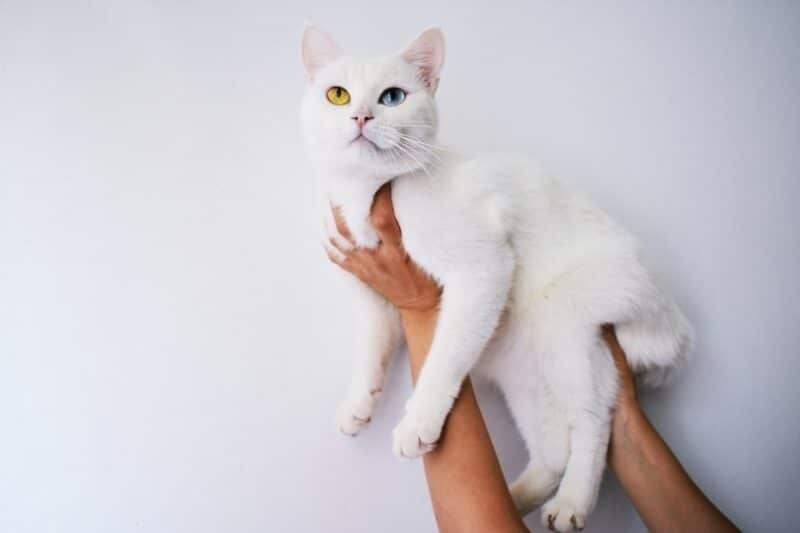

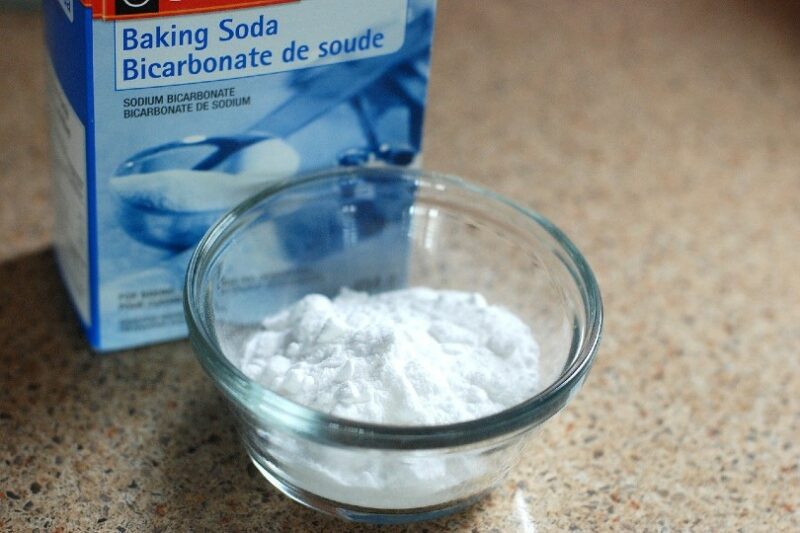
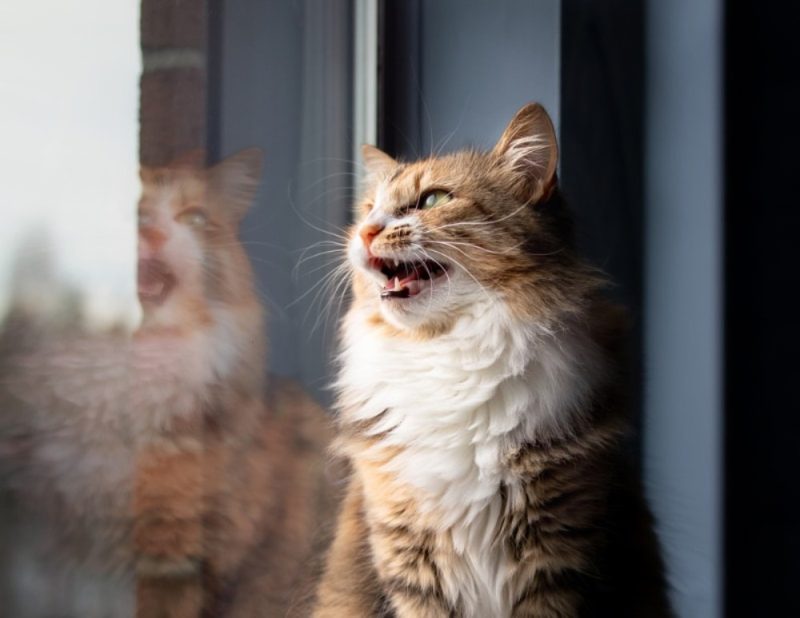
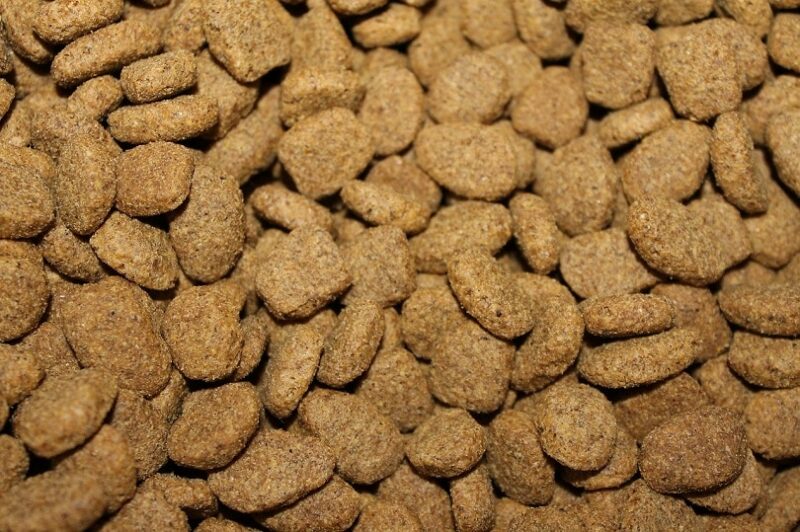
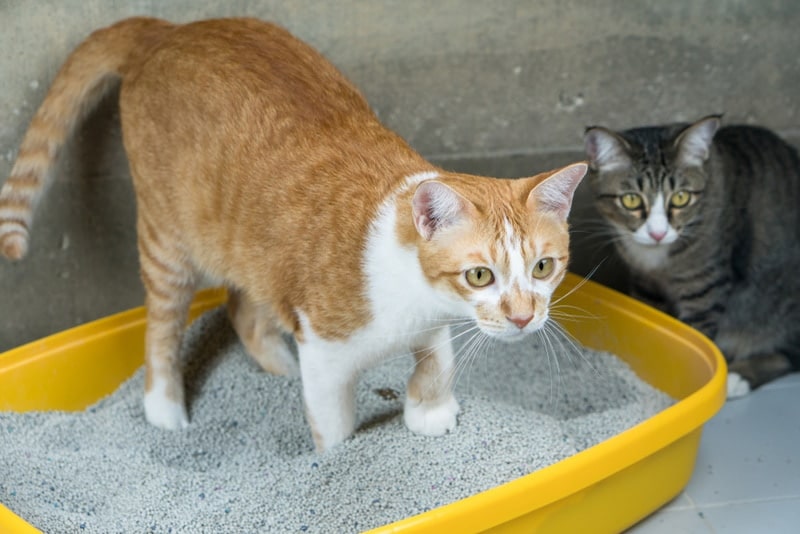

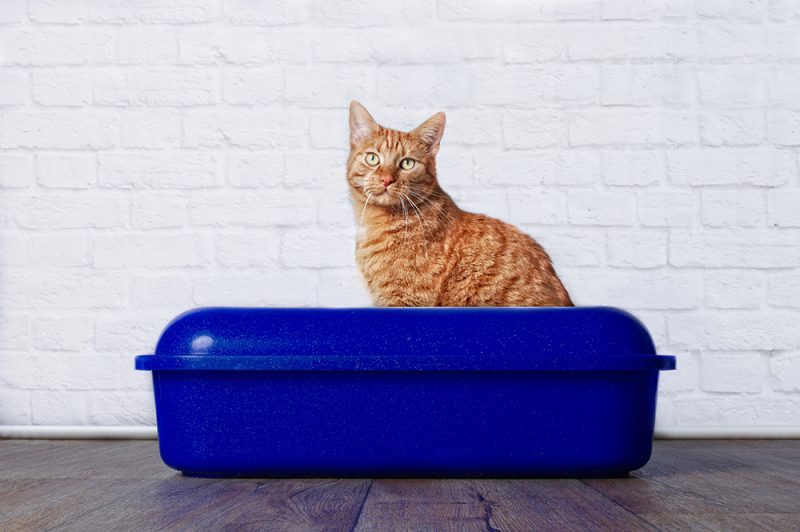
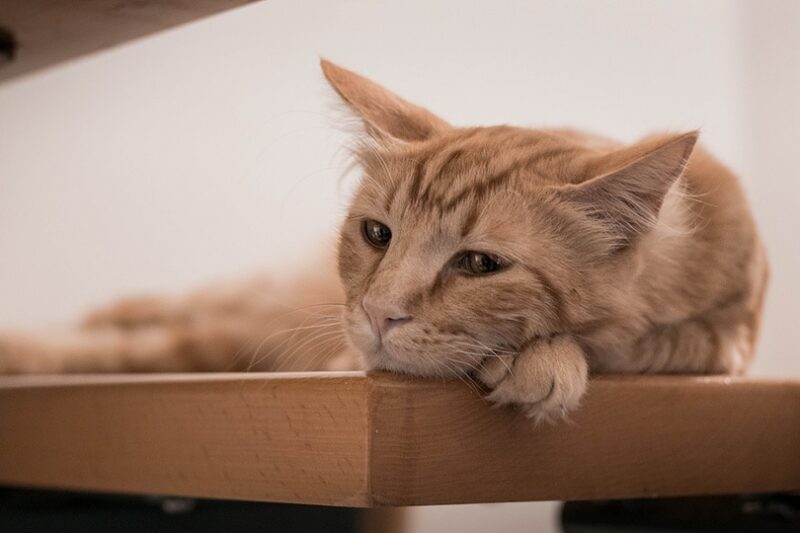
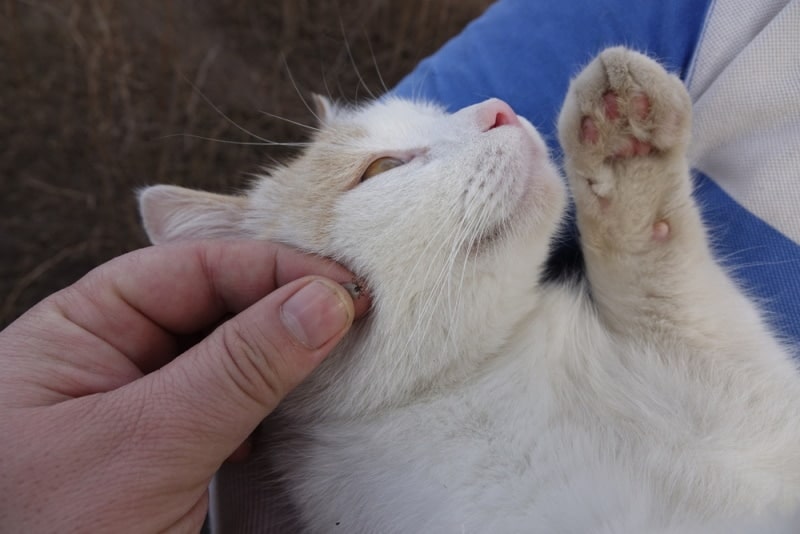
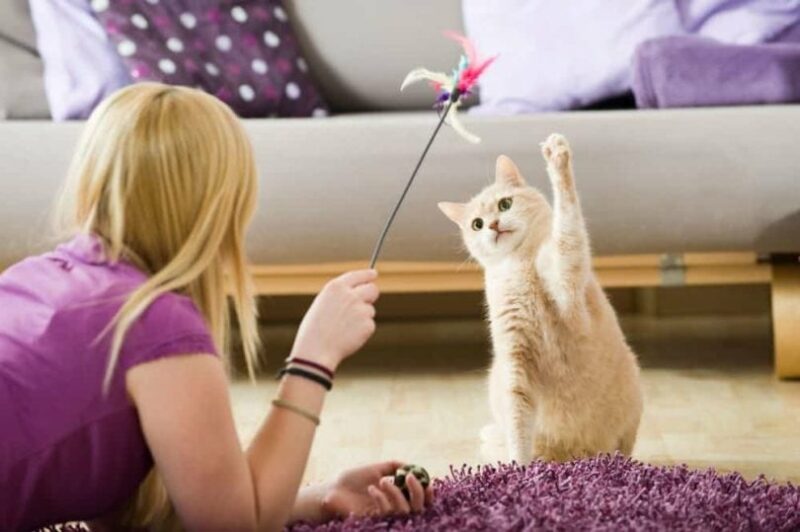
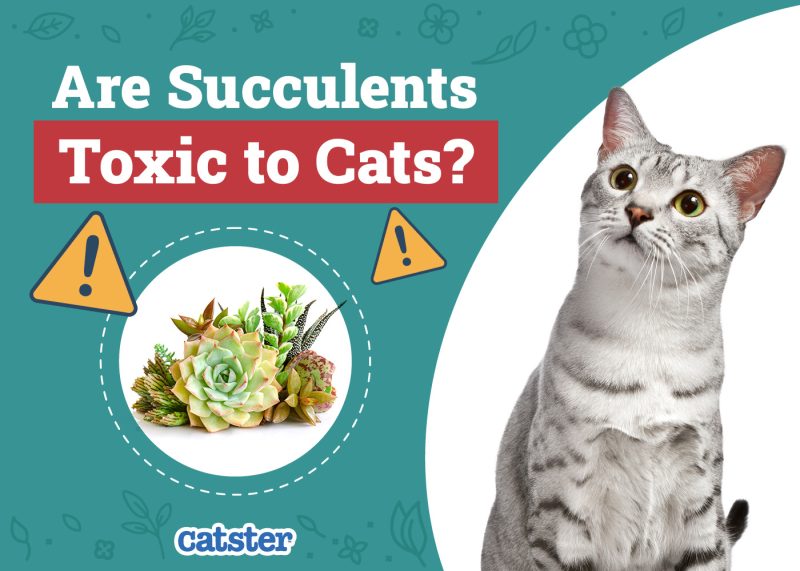
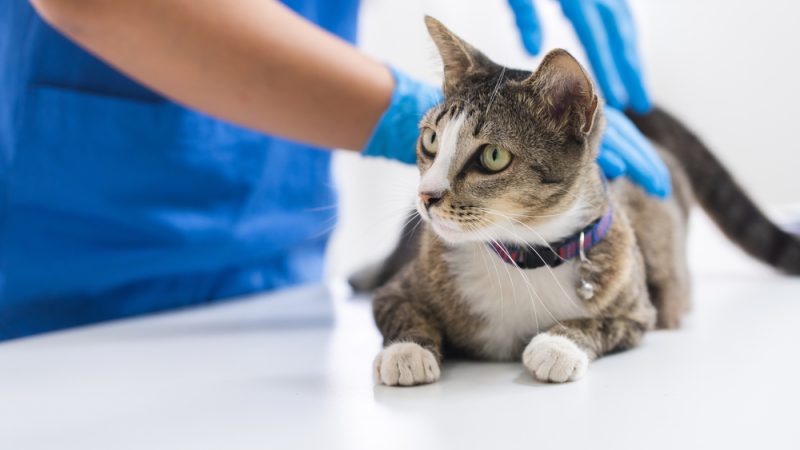
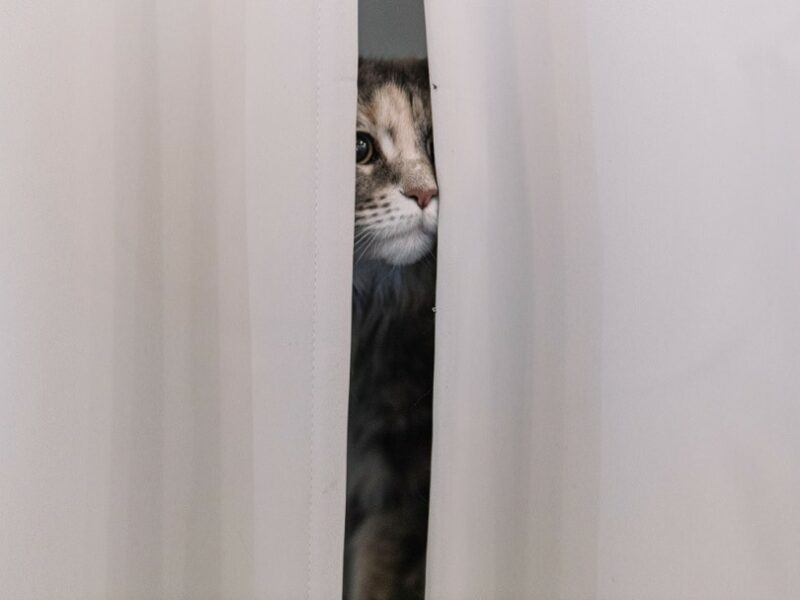
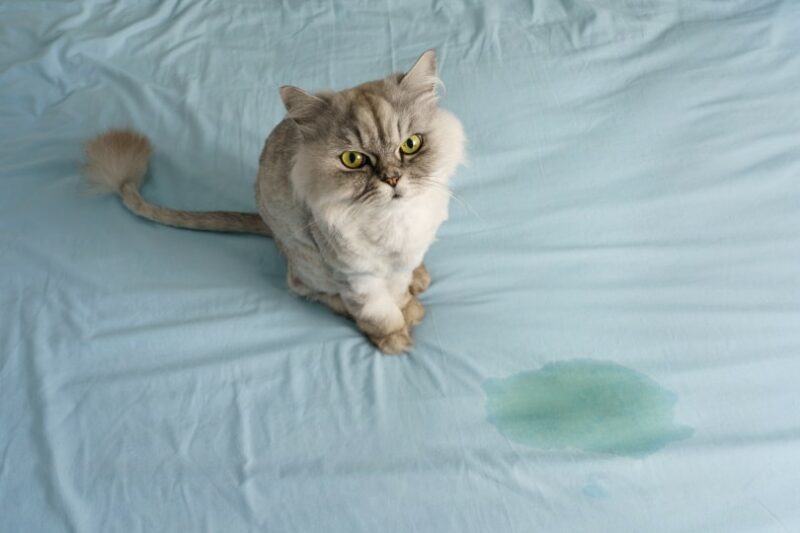



2 Responses
I give my cat 1 small fresh mint leaf ever so often as a treat. He loves it! Doesn’t seem to be an issue, but after reading that mint is considered toxic to cats, I am now concerned. My cat is 18 months old and seems fine. Should I stop giving him mint?
Hi LB, it's best to avoid giving cats any mint other than catnip or catmint. You could try those instead!